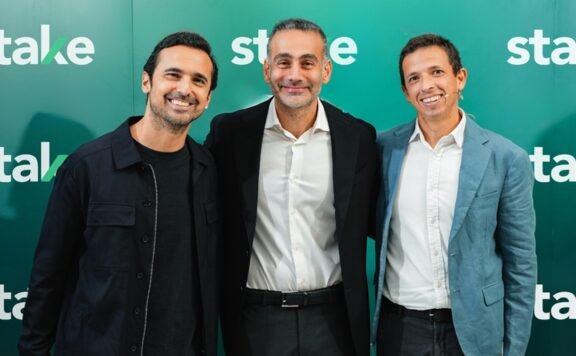According to the EY MENA M&A Insights 9M 2024 report, the MENA region witnessed an increase in merger and acquisition (M&A) activity with a total of 522 deals amounting to US$71.0b. When compared to the same period in 2023, deal volume this year grew by 9%, while deal value saw a 7% rise.
The United Arab Emirates (UAE) and the Kingdom of Saudi Arabia (KSA) were the preferred destinations for investors due to their favorable business policies, with 239 deals reaching a combined disclosed value of US$24.5b. They were also among the top MENA bidder countries in terms of deal volume and value, representing 52% and 81% of the total respectively.
Sovereign wealth funds (SWFs), such as Abu Dhabi Investment Authority (ADIA) and Mubadala from the UAE and the Public Investment Fund (PIF) from KSA, continued to lead the deal activity in the region to support their countries’ economic strategies.
During the first nine months of 2024, cross-border M&As played a significant role, contributing 52% of the overall volume and 73% of the value. Meanwhile, domestic M&A value increased year-on-year (y-o-y) by 44% to reach US$19.3b, primarily driven by government-related entities (GREs) transactions in the oil & gas, metals & mining and chemicals sectors. Domestic M&A activity accounted for 48% of the total number of deals.
The United States of America (US) remained the preferred target destination for MENA investors with 32 deals amounting to US$18.3b. With the US-UAE Business Council playing an active role in promoting partnerships, prominent US companies are collaborating with UAE public and private sector stakeholders on various initiatives.
Brad Watson, EY MENA Strategy and Transactions Leader, says:“Deal activity in the MENA region has seen a notable improvement this year, driven by strategic policy shifts, the liberalization of investment regulations and robust capital inflows from investors. With companies actively seeking opportunities to grow and diversify their operations, we have observed a surge in cross-border M&A volume and value. In particular, the UAE remained a favored investment destination during the first nine months of 2024 due to its business-friendly regulations and efficient legislative framework. Meanwhile, strengthening regional relationships with Asian and European economies, alongside existing ties with the US, enabled MENA countries to gain access to larger and growing markets.”
Top 10 M&As concentrated in the GCC region
Ten of the MENA region’s highest-valued M&As in the first nine months of 2024 were concentrated in the GCC. The largest transaction took place in February 2024, when Clayton Dubilier & Rice, Stone Point Capital and Mubadala Investment announced their acquisition of Truist Insurance Holdings for US$12.4b. Meanwhile, Saudi Arabia recorded the largest disclosed domestic deal with Saudi Aramco’s acquisition of a 22.5% stake in Rabigh Refining and Petrochemical Company from Tokyo-based Sumitomo Chemical for US$8.9b. In March 2024, PAG, Mubadala and ADIA invested US$8.3b in a 60% stake in the Chinese shopping mall company Zhuhai Wanda Commercial Management Group.
Insurance and oil & gas were the most attractive sectors for investors in the first nine months of the year, representing 34% of total deal value.
Domestic deals grow in volume and value
The first nine months of 2024 saw 248 domestic deals with a combined disclosed value of US$19.3b, marking a 7% increase in M&A activity. GCC players were involved in 81% of the deals, reflecting a high level of intra-regional M&A activity. There were 139 deals within and between the UAE and KSA, accounting for 56% of the overall domestic M&A volume.
With increasing emphasis on digital transformation and shifting consumer patterns, technology and consumer products witnessed 78 deals, representing 31% of the total domestic M&A volume. Meanwhile, the oil & gas and metals & mining sectors became the major contributors in terms of M&A value with 19 deals amounting to US$10.9b. Notably, oil & gas accounted for 46% of the total deal value.
KSA dominated the lists of target countries as well as bidder countries, with the UAE, Morocco, Bahrain and Egypt featuring in both rankings as well.
United States and United Kingdom lead in inbound deal volume
With MENA emerging as one of the most attractive destinations for foreign direct investment (FDI), inbound deals towards the region in the first nine months of this year rose by 20% y-o-y in terms of volume. Meanwhile, deal value surged by 47% compared to the same period in 2023. The first three quarters of 2024 recorded 127 inbound deals with a total disclosed value of US$10.4b.
The US and the United Kingdom (UK) together accounted for 42% of total inbound M&A activity. The technology and professional firms & services sectors reported the highest deal volume and value, contributing 48% and 39% respectively. The US contributed 33% of the total deal volume in these sectors, with 80% of these deals being partnerships with UAE, showcasing strong US interest in the UAE’s technology and professional services, driven by rising digitalization and artificial intelligence adoption.
With increased FDI flows in the private sector, the UAE represented 60% of the total inbound M&A volume and 67% of the value.
Outbound deals witness lively activity
During the first nine months of 2024, outbound activity was the largest contributor to total deal value at 58%, with 147 deals that amounted to US$41.4b. Insurance and real estate accounted for 50% of the deal value in this space, mainly resulting from two mega investments involving MENA-based SWFs. The US and China represented 70% of the outbound deal value.
Asia and North America together contributed 46% and 77% of the total outbound deals by volume and value respectively.
Anil Menon, EY MENA Head of M&A and Equity Capital Markets Leader, says: “The MENA M&A market is extremely buoyant and we expect to end the year with more than 700 deals, which will be very close to the historic five-year high of 750 deals. This is a remarkable achievement in the context of uncertain geopolitics and higher cost of capital.”





